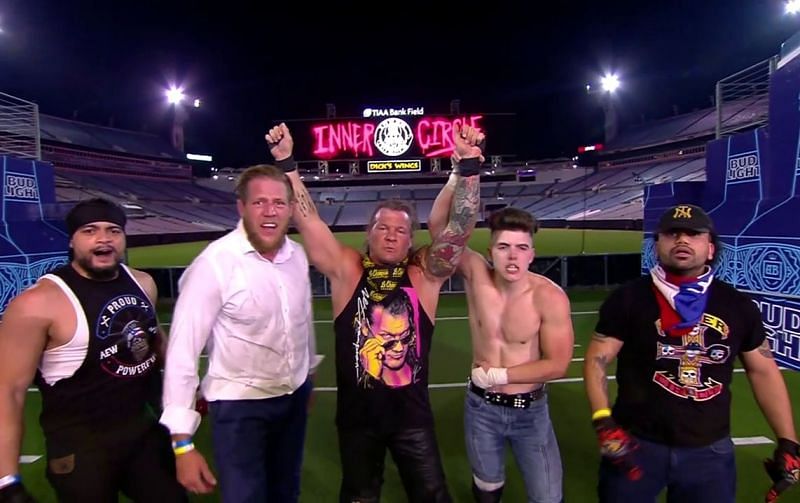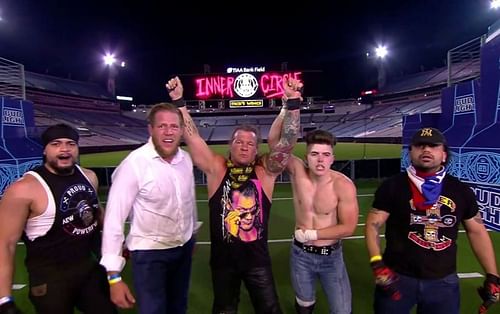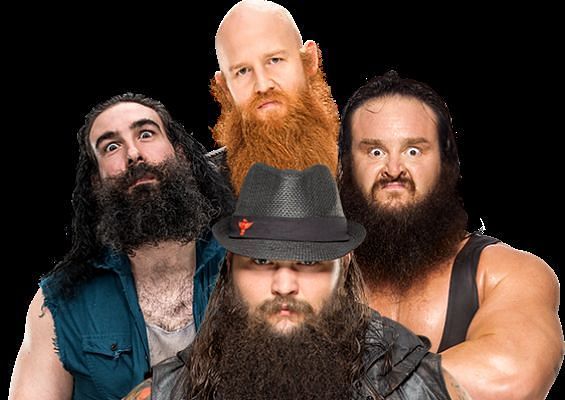
The Power of the Pin: Are there too many factions in pro wrestling today?

They say there’s strength in numbers, and when it comes to factions, that appears to be true.
In the world of pro wrestling, that usually means characters joining up with fellow performers who share the same agenda. No matter if it's a gang of vicious villains who are hellbent on destruction, or a band of benevolent babyfaces who are out for justice, the squared circle has long been home to myriad different factions.
For the most part, a faction in wrestling can be defined by being comprised of three or more members who all share a common cause. Oftentimes, the goal of these groups is to garner the gold or eliminate their enemies.
Factions also often have a centralized figure as their leader. Whether it was the Four Horsemen, captained by Ric Flair, or the nWo, headed by Hollywood Hulk Hogan, these brigades tend to rally around their biggest star.

It's a proven formula that has been successful in the past. Examples of this have been such all-star squads as the New World Order, D-X, and The Shield, among others. Building up these factions provided a springboard for talent and a showcase for multiple storylines.
However, in recent years, there's been an over-reliance on these super-groups at the highest level of the sport.
And today? There seems to be far more factions than ever before.
This is especially evident in All Elite Wrestling, where it seems like the vast majority of their performers have somehow joined a club. Even though their original super-group, The Elite, seems to be drifting apart, there are plenty other factions that fill out their roster.
Inner Circle, The Dark Order, Team Taz, Eddie Kingston's "Family," SCU, Best Friends (with Orange Cassidy) and the Jurassic Express are all groupings of three or more. it's gotten to the point where everyone seems to have been initiated in to their own, little fraternities and have pledged away their independence.
The WWE roster is certainly much deeper, so its only reasonable that they have their fair share of factions, as well.
Longtime trio The New Day may have been separated by the recent Draft, but the company is still home to the likes of Retribution, The Hurt Business, Imperium, The Undisputed Era, and a handful of other, loosely-formed affiliations.
It's almost become a crutch, a situation where if a company isn't sure what to do with a handful of wrestlers, they simply throw them in to a group to see what sticks. In many ways it can be a double-edged sword for the performers involved.
A great example of this is the faction once known as The Wyatt Family.

While Brawn Strowman went on to singles success, and Bray Wyatt became the wildly successful Fiend, both Luke Harper and Erik Rowan never seemed to break out of the shadow of that larger group. That hindered them when they tried to establish an identities of their own in WWE.
So, for all the Randy Ortons and Dave Bautistas — who were elevated to made man status by being part of a famous faction — there are just as many failures.
Guys like Steve McMichael or Manu probably thought being in a stable would lead them to stardom. But it turned out that, through no fault of their own, being a link in the chain is pretty much all they will be remembered for. Singles success may have fallen upon some of their cohorts, but it was never bestowed upon them.
It begs the question: Is a performer better off finding success as part of a larger family? Or is success better attained when they are soaring solo?